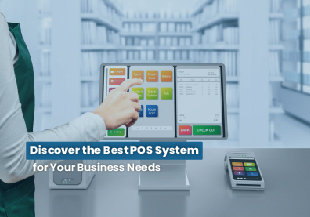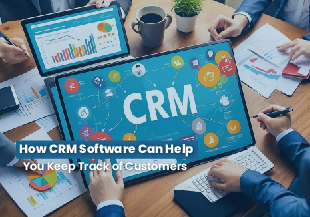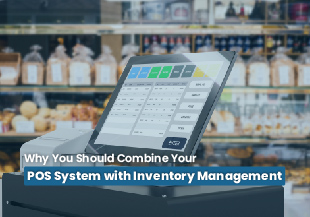In the rapidly evolving world of real estate, managing customer relationships efficiently and effectively has become essential for success.
In the rapidly evolving world of real estate, managing customer relationships efficiently and effectively has become essential for success. Customer Relationship Management (CRM) software has emerged as a crucial tool for real estate professionals to streamline their processes, enhance customer interactions, and drive business growth. In this article, we will delve into the features and functionality of leading real estate CRM software, specifically focusing on CRM software in Pakistan.
In the dynamic world of real estate, managing a vast array of customer data and interactions can be overwhelming without proper tools. Real Estate CRM software is designed to address this challenge by centralizing customer information, automating tasks, and providing valuable insights to optimize business processes. Let's explore how these solutions can revolutionize the way real estate professionals operate.
The Importance of Real Estate CRM Software
Real estate professionals deal with a diverse range of clients, from potential buyers and sellers to investors and partners. Keeping track of all these interactions manually can lead to missed opportunities and disorganized data. A robust CRM system helps organize leads, manage contacts, and facilitate effective communication, ensuring that no prospect falls through the cracks.
Key Features of Real Estate CRM Software
1. Lead Management
CRM software allows agents to capture, track, and nurture leads throughout the sales cycle. From initial inquiries to follow-up communications, the system ensures that every lead receives personalized attention and timely responses.
2. Contact Management
Maintaining an extensive database of contacts is vital for any real estate business. CRM software enables agents to categorize contacts, track communication history, and set reminders for important follow-ups.
3. Property Listings
A comprehensive CRM solution includes features to manage property listings efficiently. Agents can update property details, upload images, and showcase listings to potential buyers effortlessly.
4. Task and Calendar Management
To stay organized, real estate professionals need efficient task and calendar management tools. CRM software helps them schedule appointments, set reminders, and manage tasks to ensure nothing gets overlooked.
5. Email Marketing
Email marketing remains a powerful tool for nurturing leads and engaging with clients. CRM systems enable agents to create targeted email campaigns and automate personalized messages.
6. Reporting and Analytics
Data-driven decision-making is crucial for business growth. Real estate CRM software provides comprehensive reports and analytics, offering insights into sales performance, lead conversion rates, and more.
7. Mobile Accessibility
In today's fast-paced world, access to information on the go is essential. Leading CRM software offers mobile apps, ensuring agents can stay connected and manage their tasks from anywhere.
8. Integration Capabilities
Integrating CRM with other essential tools like accounting software, marketing platforms, and website plugins streamlines workflows and optimizes overall efficiency.
Choosing the Right CRM Software for Your Real Estate Business
When selecting a CRM software for your real estate business, consider the following factors:
1. Assessing Your Business Needs
Identify your specific requirements and challenges to find a CRM solution that caters to your unique needs.
2. User-Friendly Interface
Ensure the CRM software is intuitive and user-friendly to minimize the learning curve for your team.
3. Scalability and Customizability
Choose a CRM system that can grow with your business and allows customization according to your changing needs.
4. Customer Support and Training
Reliable customer support and comprehensive training resources are vital for successful CRM implementation.
5. Pricing and Budget
Evaluate the pricing plans and choose a solution that aligns with your budget and expected return on investment.
Implementing CRM Software Successfully
1. Set Clear Objectives
Before implementation, define clear objectives to ensure your team knows what to achieve with the CRM system.
2. Train Your Team
Provide comprehensive training to your team members to ensure they can make the most of the CRM software's features.
3. Data Migration and Integration
When migrating from existing systems, ensure a seamless data transfer and integrate CRM with other essential tools.
4. Monitor and Optimize
Continuously monitor CRM performance and gather feedback from your team to optimize its use for maximum efficiency.
The Future of Real Estate CRM Software
As technology advances, real estate CRM software will likely evolve to incorporate AI-driven insights, predictive analytics, and seamless multi-channel communication, further enhancing customer interactions and business productivity.
Conclusion
In conclusion, investing in a leading real estate CRM software is no longer optional but a necessity for businesses aiming to stay competitive in the ever-changing real estate landscape. The right CRM system can streamline operations, boost customer satisfaction, and ultimately drive growth. Take the time to evaluate your options and choose the CRM software that aligns perfectly with your business needs.






 Chat with Prismatic Bot
Chat with Prismatic Bot